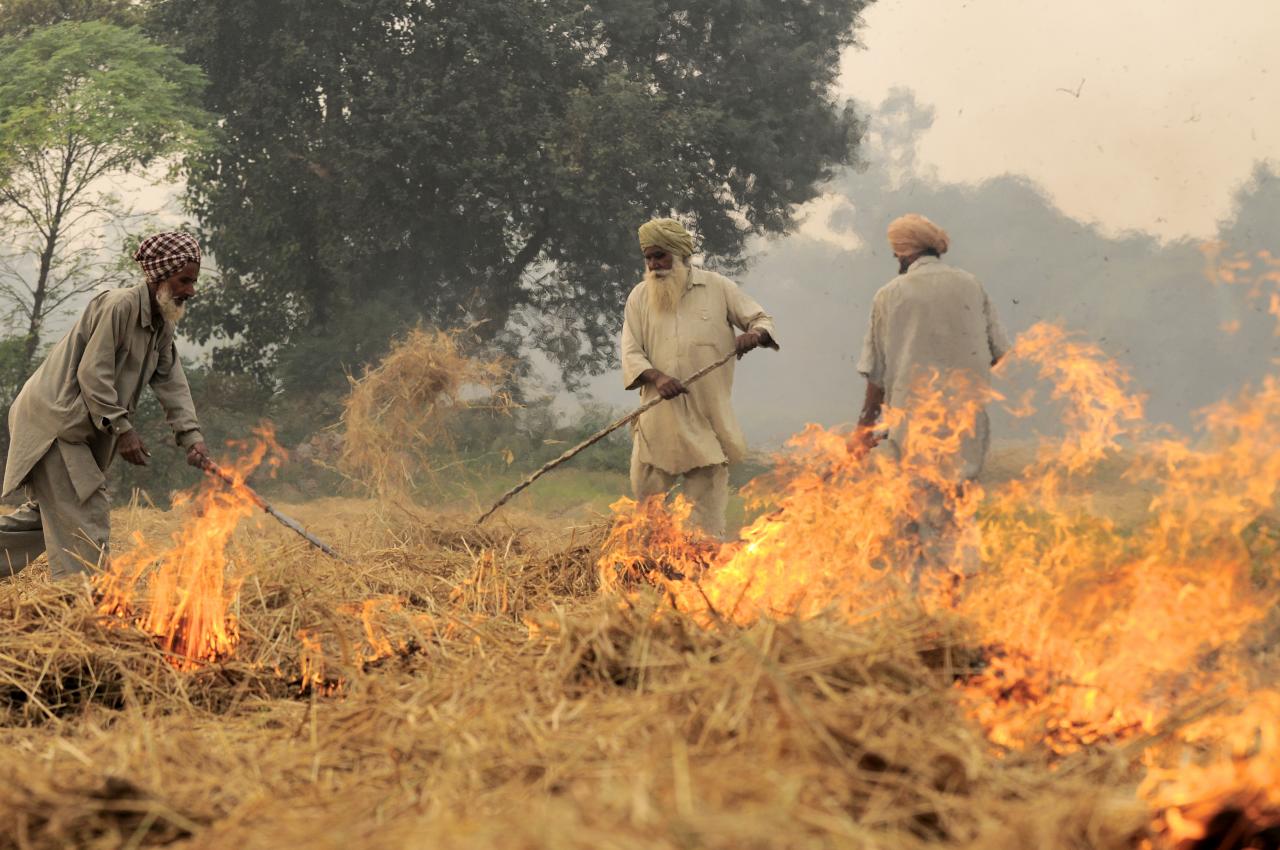Air pollution is at an all time rise in India because of industrialisation and urbanisation in lieu of national development. Especially in Northern India, the air quality has dropped down at alarming levels causing the government to declare red alert several times in the last couple of years.
One of the significant contributors to this low quality of air is the stubble burning by farmers. Stubble burning is a common practice amongst farmers across north India, especially in the absence of economically viable and convenient solutions. According to the National Academy of Agricultural Sciences, nearly 23 million tonnes of rice residue are burnt every year, releasing 34 million tonnes of CO2 emissions, causing large parts of north India to be covered in thick layers of smog. Exposure to this smog can lead to severe health and environmental hazards, experienced in several parts of North India every winter.
In February 2018, the Punjab government made it mandatory to use the Straw Management System (SMS), while using the combine harvester machines. EY Foundation India has committed its support to the India Paryavaran Sahayak (IPS) Foundation to implement a cost efficient and scalable solution to address the air quality issue in Northern India. The grants will be used to spread awareness and drive usage of in-field SMS practices among farmers to reduce air pollution caused due to crop residue burning. The first phase of the project will cover over 300 villages in five districts of Punjab, which have been observed to have high prevalence of crop burning.
“Pollution caused due to crop residue burning across India has been a cause for concern for several years and needs immediate attention. Our support is aimed at encouraging economically viable, easy to adopt and scalable solutions for the farmers,” said Sridhar Iyer, National Director, EY Foundation India.
Using the grants, IPS Foundation will raise awareness among farmers about the benefits of using in-field SMS combined with Happy Seeders, which will enable farmers to sow the next crop without clearing the standing stubble. The awareness programme will include roadshows, community meetings, product demonstrations, farm visits and technical trainings for farmers.
“For any solution to be sustainable and widely accepted, it is important that it is cost efficient and convenient for the farmers to adopt. While several challenges exist, which have hindered wide-scale adoption of alternate technology to avoid burning, with consistent efforts and support from all stakeholders, this issue can be addressed,” said Ritesh Bhatia, CEO, IPS Foundation.
The cost of using a Straw Management System and Happy Seeder is comparable to the overall costs incurred by farmers in preparing the land after burning the crop residue. The system is estimated to not only help in increasing average yield of wheat by 2-4% over a period of time (as compared to conventional methods) but also lead to savings in water while improving soil health. Over the next two years, the Foundation expects reduction of CO2 emissions by 3 lakh tonnes and water savings of 48 million litres.
Thank you for reading the story until the very end. We appreciate the time you have given us. In addition, your thoughts and inputs will genuinely make a difference to us. Please do drop in a line and help us do better.
Regards,
The CSR Journal Team

